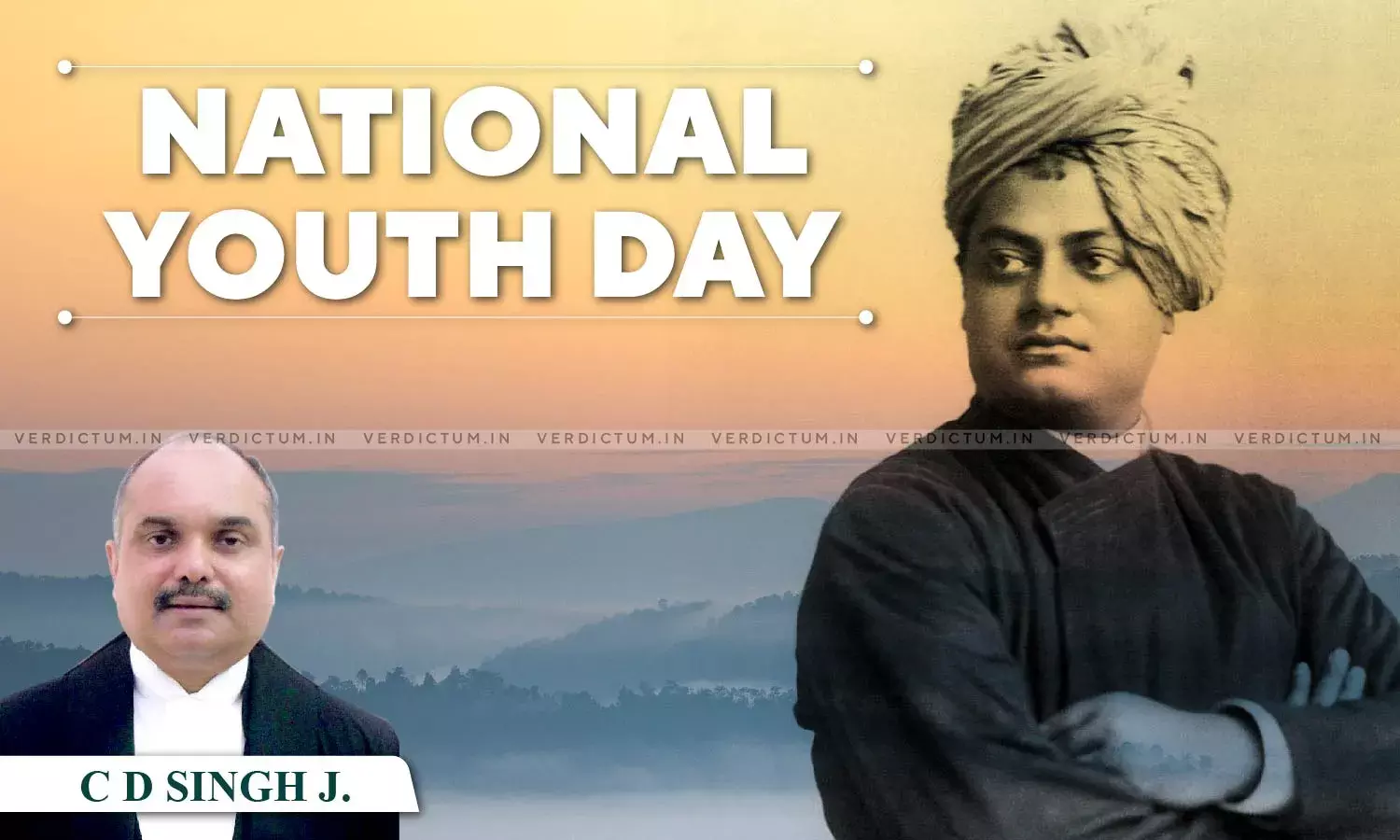Swami Vivekananda Was Born Into A Family Of Legal Professionals, He Inspired Founding Fathers Of Our Constitution: Justice Chandra Dhari Singh

Justice Chandra Dhari Singh of the Delhi High Court said yesterday that Swami Vivekananda widely inspired not only the Freedom Movement but also inspired the founding fathers of our Constitution.
Justice Singh was speaking at an event celebrating Vivekananda Jayanti as 'Youth Advocates' Day', organised by Adhivakta Parishad, Delhi. 12 January, being the birthday of Swami Vivekananda, is celebrated as National Youth Day since 1985.
"Swami Vivekananda was born into a family of legal professionals. His great grandfather, Rammohan Datta was a ‘managing clerk and associate of an English solicitor’. His grandfather Durgaprasad became a partner of his father (Rammohan Datta) in his legal profession. Swami ji’s father Vishwanath Datta was an attorney in partnership with Ashutosh Dhar, under the firm name of “Dhar and Datta”. After some time he settled in the legal profession independently and was enrolled as an attorney-at-law in the High Court of Calcutta’. Swami Vivekananda, as Narendranath, entered the firm of Nimaichandra Basu, attorney-at-law, as an articled clerk, in order to qualify himself as an attorney. He had pursued the three-year Law course in the erstwhile Metropolitan Institution, and went on to become a qualified advocate", Justice Singh said in his address.
Justice Singh quoted from the Constituent Assembly Debates where the words of Swami Vivekananda were relied upon.
He said that this influence of law on Swamiji, apart from his using it at times during his talks and lectures, has influenced the judiciary as well. "Swami Vivekananda is quoted profusely in the judgements of many Indian courts, notably the Supreme Court of India", Justice Singh said.
Justice Singh quoted from Justice Indu Malhotra's dissenting opinion in the Sabrimala case and five other Judgments, including S R Bommai v. Union of India, where Swami Vivekananda's words have been referred to.
Justice Singh said that Swami Vivekananda was interested not only in religion but in everything that concerned man- science, art, literature, history, politics, and that he gave much thought to alleviating India’s problems such as poverty, illiteracy, casteism, exploitation, etc.
He said that on February 14, 1897, Swami Vivekananda exhorted Indians "For the next fifty years this alone shall be our keynote- this, our great Mother India" and that his words were prophetic since fifty years later, India became free.
Justice Singh explained the "three steps of patriotism" laid down by Swami Vivekananda.
"First, feel from the heart", he quoted Vivekananda.
"The second step Swamiji says: You may feel, then; but instead of spending your energies in frothy talk, have you found any way out, any practical solution, some help instead of condemnation, some sweet words to soothe their miseries, to bring them out of this living death?", Justice Singh said.
Justice Singh quoted Vivekananda on the third step thus- "Yet that is not all. Have you got the will to surmount mountain-high obstructions? If the whole world stands against you sword in hand, would you still dare to do what you think is right?".
Justice Chandra Dhari Singh concluded by saying, "I sincerely wish and pray that we may continue relentlessly in the spirit of “चरैवेति चरैवेति” - in the pursuit of justice and to serve the Bharatiya society".

